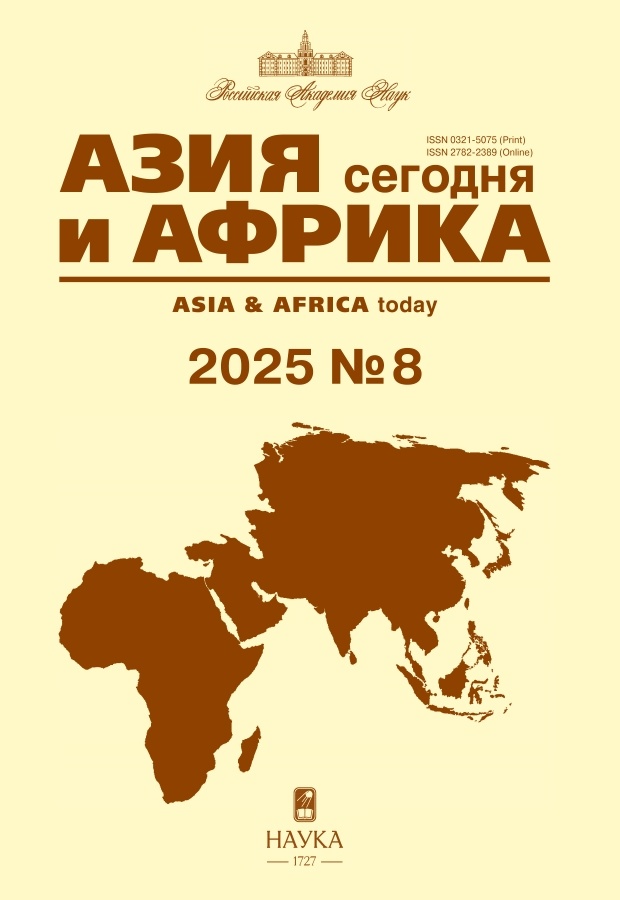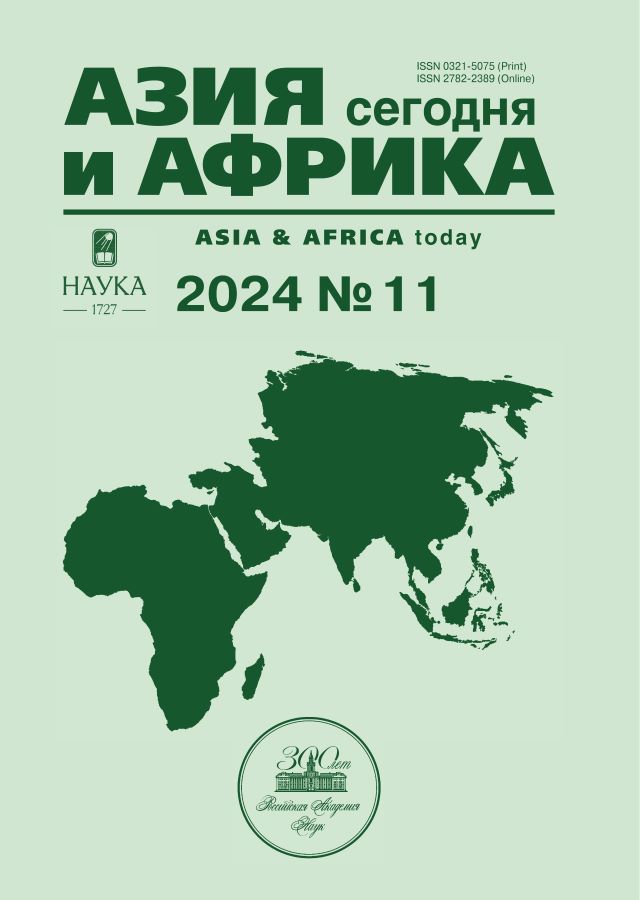Экономические и политические аспекты вступления Египта в БРИКС
- Авторы: Уфимцев А.А1,2
-
Учреждения:
- Институт Африки РАН
- НИУ ВШЭ
- Выпуск: № 11 (2024)
- Страницы: 49-56
- Раздел: БРИКС сегодня
- URL: https://jdigitaldiagnostics.com/0321-5075/article/view/647481
- DOI: https://doi.org/10.31857/S0321507524110066
- ID: 647481
Цитировать
Полный текст
Аннотация
Статья посвящена анализу причин, по которым руководство Египта приняло решение о вступлении в БРИКС в январе 2024 г. Анализ публичной риторики египетского руководства показал, что ключевые мотивы вступления в организацию связаны с экономикой чаще всего египетские политики говорят о расширении сотрудничества со странами членами организации, дедолларизации и Новом банке развития БРИКС. Интерес к экономической повестке обусловлен тем, что Египет сталкивается с такими вызовами, как дефицит бюджета, высокая инфляция, отрицательное сальдо торгового баланса и девальвация национальной валюты. Делается вывод о том, что БРИКС способен оказать ограниченное воздействие на данные проблемы Египта и не является панацеей, однако потенциальные выгоды от вступления, связанные с экономической кооперацией и доступом к Новому банку развития значительно превышают издержки, которые ограничиваются небольшим риском ухудшения отношений с Соединенными Штатами. БРИКС не накладывает жестких обязательств на своих членов, что делает организацию привлекательной для стран с разными политическими системами, позволяя им сохранять сбалансированность в международных отношениях с различными их участниками.
Ключевые слова
Об авторах
А. А Уфимцев
Институт Африки РАН; НИУ ВШЭ
Email: aufimtsev@hse.ru
ORCID iD: 0000-0002-4870-4360
младший научный сотрудник, Центр изучения африканской стратегии БРИКС; стажер-исследователь, Центр изучения стабильности и рисков Москва, Российская Федерация
Список литературы
- Дейч Т.Л., Корендясов Е.Н. БРИКС - новый игрок на Африканском континенте. Азия и Африка сегодня. 2012. № 6. С. 18-23.
- Nuruzzaman M. 2020. Why BRICS Is No Threat to the Post-war Liberal World Order. International Studies. Vol. 57. Iss. 1. Pp. 51-66. doi: 10.1177/0020881719884449
- Davis M.L., Ferrantino M. Towards a positive theory of political rhetoric: Why do politicians lie? Public Choice. 1996. Vol. 88. Iss. 1-2. Pp. 1-13. doi: 10.1007/BF00130405
- Barnes J. Staple security: bread and wheat in Egypt. Staple security. Durham: Duke University Press. 2022. 296 p.
- Breisinger C., Kassim Y., Kurdi S., Randriamamonjy J., Thurlow J. 2024. From Food Subsidies to Cash Transfers: Assessing Economy-Wide Benefits and Trade-Offs in Egypt. Journal of African Economies. Vol. 33. Iss. 2. Pp. 109129. doi: 10.1093/jae/ejad006
- Воронина Н.А., Зеленова Д.А. Председательство ЮАР в БРИКС: от взаимовыгодного партнерства к построению нового миропорядка. Азия и Африка сегодня. 2023. № 11. С. 23-31.
- Киртон Д., Ларионова М. БРИКС. Первые 15 лет сотрудничества. Вестник международных организаций. 2022. Т. 17. № 2. C. 7-30.
- Клишин В.В., Павлов В.В. Новый банк развития БРИКС: проблемы создания и перспективы деятельности. Азия и Африка сегодня. 2015. № 9. С. 27-30.
- Kopiński D., Lubasiński J., Michalski B., Pilszyk M., Święcicki I., Wąsiński M. 2024. The Big Bang Enlargement. 20 Years of Central Europe’s Membership in the EU.
- Боброва В.В. Новый таможенный кодекс ЕАЭС как эффективный инструмент государственного регулирования внешней торговли. Региональная экономика и управление: электронный научный журнал. 2017. № 13(49). С. 499-511.
- Hazak G. 2012. The European Union - a federation or a confederation? Baltic Journal of European Studies. Vol. 2. Iss. 1. P. 11.
- Jonas J. 2006. Euro adoption and Maastricht criteria: Rules or discretion? Economic Systems. Vol. 30. Iss. 4. Pp. 328-345.
- Sasse G. 2005. EU conditionality and minority rights: Translating the Copenhagen criterion into policy.
- Taspinar O. Global South and the US Perception of BRICS Enlargement. Emirates Policy Center, 14.09.2023. https://epc.ae/en/details/scenario/global-south-and-the-us-perception-of-brics-enlargement (accessed 23.05.2024)
Дополнительные файлы











